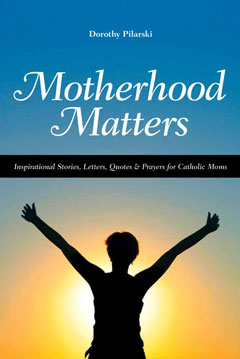
On an early Friday afternoon during its opening weekend, I managed to get a seat in a packed theatre to see Walt Disney’s “Frozen 2” (2019): the much-anticipated sequel to the cultural phenomenon, “Frozen” (2013), for which I wrote an extended reflection some years back explaining how the original film outlines various key points in salvation history from a Catholic perspective.
Check out this link for the full text from that earlier reflection: https://www.facebook.com/…/a.167548555256…/1857223111062906….
After watching the sequel, I thought I would write a reflection focusing on a single aspect of the film, rather than do a comprehensive review of the entire plot line.
There are NO MAJOR SPOILERS in this newest reflection; so feel free to continue reading, even if you haven’t seen the movie yet!
KEY THEME: PRINCIPLES OF DISCERNMENT WITHIN “INTO THE UNKNOWN”
There’s a scene early on in the film where Queen Elsa (played by Idina Menzel) is living happily in the Kingdom of Arendelle in the company of those closest to her — including her younger sister, Anna (Kristen Bell); Anna’s boyfriend, Kristoff (Jonathan Groff); a talking snowman named Olaf (Josh Gad); and Kristoff’s faithful reindeer companion, Sven — when she discovers suddenly that she able to perceive a mysterious, lyrical voice which calls out to her; but which apparently she alone can hear.
This early tension in the story gives rise to the film’s primary power ballad, “Into the Unknown,” which contains some key points for reflection when it comes to discerning God’s will in our lives. As such, I thought it might be helpful to take the time to reflect upon the song’s lyrics to unpack the spiritual principles contained therein, particularly as they relate to matters of discernment.
PART ONE: “NO ONE CAN SERVE TWO MASTERS” (MT 6:24)
One of the more striking details in the opening verses of “Into the Unknown” is the fact that Elsa seems not only resistant to the beckoning of the mysterious voice, but she also seems slightly annoyed and even angry at its stubborn persistence. There’s an increasing sense of sharpness in her voice whenever she says such lines as: “I can hear you, but I won’t!” or “And if I heard you, which I don’t!” which speaks to a palatable sense of tension in her heart, which arises whenever she feels called to go beyond herself and her own comfortable surroundings.
It’s a difficulty which is reflected in that famous passage from the Gospel of Matthew where Jesus says: “No one can serve two masters. For you will either hate one and love the other; or you will be devoted to one and despise the other. You cannot serve both God and mammon” (6:24). While people often translate that last word “mammon” as “money” or even “love of money,” a more accurate translation would be something akin to “anything less than God.”
The general principle with regards to this passage is not simply that we should avoid attachments to worldly substitutes for the reality of God, such as wealth, pleasure, power or honour; but that we should also be mindful of the fact that, if we insist on clinging to “anything less than God,” we will come inevitably to be annoyed with or even hate God and the things of God!
In the story of “The Parable of the Wedding Feast” (Mt 22:1-14; Lk 14:15-24), for example, we hear about how various townsfolk are invited to attend the wedding banquet of a king’s son. While these people refuse initially to come to the feast because they are busy with worldly concerns — such as attending to the purchase of a new farm or a new set of oxen (Lk 14:19) or even a new marriage (Lk 14:20) — their underlying sense of resentment and even rage against the king for even suggesting that they disrupt their own selfish plans and ambitions is revealed finally when the people decide to “[grab] his servants, and [treat] them shamefully, and [kill] them” (Mt 22:6).
In the context of “Into the Unknown,” Elsa herself exposes this latent egotism of our own fallen human nature — which secretly despises the subtle invitations of God, while remaining hidden under the guise of a worldly sense of responsibility and social propriety — when she declares early on: “There’s a thousand reasons I should go about my day and ignore your whispers which I wish would go away.”
PART TWO: “THE GOOD” AS THE ENEMY OF “THE BEST”
When Elsa refuses to correspond to her supernatural calling, her recurring excuse is not so much that she’s otherwise engaged in egregious forms of nefarious activity; but rather, that she’s attending to all sorts of “good” things which are already occupying her time and attention. For instance, she says openly: “Everyone I’ve ever loved is here within these walls!” Alluding to the events of the previous film, she adds: “I’ve had my adventure: I don’t need something new!”
These remarks are reminiscent of the writings of the French writer and philosopher Voltaire (1694-1778), who suggested once that the enemy of “the best” is not “the worst” — but simply “the good.” In other words, a temptation that the devil will use often with great success to throw off people of good will is not so much to invite them to engage in overt forms of evil, such as punching someone in the face; instead, it’s to encourage them to waste their precious time and energy on things that go nowhere, such that they have nothing left finally for the things of God.
If we want to stay self-possessed and maintain our sense of integrity in the spiritual life, we have to learn to say “no” to all sorts of competing and lesser goods; such that we might focus our limited physical, psychological and spiritual resources on the few things that the Lord wants us to do carefully and well, in accordance with the specific nature of His own divine call.
PART THREE: FEAR OF BEING “NOTHING”
Despite her initial self-delusions, Elsa demonstrates quickly that she has the courage and wherewithal to confront the difficult truth that her reluctance to abandon her old, familiar ways is based not so much on the fact that the supernatural voice which she hears is inherently annoying or an objective threat to her personal sense of well-being; but because she herself is afraid of letting go of her various attachments. In a moment of tremendous honesty, she confesses: “I’m afraid of what I’m risking if I follow you!”
If we take a moment to revisit “The Parable of the Wedding Feast,” for instance, perhaps we might appreciate that the underlying reason why the various persons invited to the banquet are so hostile to the king’s messengers is because they have been so thoroughly conditioned to buy into the cultural fiction perpetuated by the world that our self-worth is based ultimately on the sum total of our various gifts, talents, possessions — or perhaps even the sum total of our sins, weaknesses and failures — as opposed to “the sum of the Father’s love for us and our real capacity to become the image of His Son Jesus,” in the words of Saint Pope John Paul II.
As such, the invitation to come away from their worldly obsessions to attend a celebratory wedding feast even for a moment — at the risk of “discovering” that they have no value apart from their constant sense of busyness — would seem to be a threat to their fundamental sense of identity and well-being. From this perspective, it would seem “easier” for these people to simply “kill the messengers,” rather than face the possibility that they are truly worthless apart from their ability to produce that which the world finds to be important and valuable.
PART FOUR: VULNERABILITY AS A PREREQUISITE TO INTIMACY WITH CHRIST
An important key to overcoming this fear of being “nothing” before the Lord is to appreciate that the Lord’s invitation to embrace our own vulnerability is not a threat to our fundamental sense of identity and personhood; but rather, an exquisitely intimate invitation to a deep and abiding sense of friendship with Him.
One of the best ways to illustrate this point is to reflect deeply on the story of the tax collector Zacchaeus (Lk 19:1-10) in conjunction with the story of the rich young man (Mt 19:16-30; Mk 10:17-31; Lk 18:18-23), which are meant obviously to be read together in parallel since they are situated very close together in the Gospels; and they share various point of convergence, including the facts that both are essentially “call stories” and that both characters are rich and powerful (Lk 18:18; 19:2).
Both Zacchaeus and the rich young man have infinite desires which are stirred deeply when they discover that Jesus of Nazareth is passing by (Lk 18:18; 19:1-4), such that they both seek the company of the one who is “the way, the truth and the life” (Jn 14:6). A key difference, however, is that, while Zacchaeus has no problem humiliating himself by climbing up a sycamore tree to get a glimpse of Jesus (Lk 19:4), the rich young man simply cannot bring himself to let go of his perceived need for respect, prestige and social status, such that the Gospel says that he goes away “grieving, because he [has] many possessions” (Lk 18:23).
It’s important to note, however, that what Jesus is looking for in both of these cases is not so much a willingness to embarrass or humiliate oneself; but rather, an openness to relationship and vulnerability, mindful that intimacy with God is born at the convergence between our own willingness to be vulnerable before the Lord and the loving heart of Our Father in heaven.
Unfortunately, the rich young man cannot get over the initial shock of the Lord’s invitation for him to become detached from all of his worldly possessions (Lk 18:23), such that he remains nameless and faceless: to be remembered forever as a man who used to be rich and young. In contrast, Zacchaeus allows himself to be truly seen and loved by the Lord as he is — in all of his weakness, sinfulness and vulnerability — such that he is finally able to give of himself and his possessions in a way that the rich young man never could (Lk 19:8).
PART FIVE: REALIZING THAT OUR DEEPEST DESIRE IS WHAT GOD WANTS FOR US
As the song progresses, Elsa enters into a deeper understanding of the truth behind the voice which appeals to her heart. There are hints of this budding sense of realization whenever Elsa sings the song’s chorus, during which she simply reiterates the words “into the unknown” with a steadily growing sense of thrill and excitement. This feeling of sheer exhilaration builds even further when Elsa sings: “Are you here to distract me so I make a big mistake? Or are you someone out there who’s a little bit like me: who knows deep down I’m not where I’m meant to be?”
It’s no coincidence that the song reaches its musical peak when Elsa finally belts out the line: “Don’t you know there’s part of me that longs to go into the unknown?” which points to the fact that she has come finally to understand that the thing she fears the most — namely, allowing herself to become vulnerable before this mysterious invitation to go beyond herself — is actually consistent with her deepest desire to do precisely that.
PART SIX: INVITATION TO “NOT SETTLE”
To further illustrate the point: consider the Biblical story about Mary Magdalene on Easter Sunday (Jn 20:11-18), which speaks of how she encounters two angels in white sitting just inside Jesus’ empty tomb who go on to ask her: “Woman, why are you weeping?” (Jn 20:13) in response to which she says: “They have taken away my Lord, and I do not know where they have laid Him” (Jn 20:13).
Mary then turns around and she sees the gardener, who turns out to be Jesus Himself, even though she doesn’t recognize Him immediately. The Lord says to her: “Woman, why are you weeping? Whom are you looking for” (Jn 20:15)? She responds by saying to him: “Sir, if you have carried Him away, tell me where you have laid him, and I will take Him away” (Jn 20:15).
Perhaps we might see that what Mary Magdalene is saying to the Lord here is something like this: “Look, what I want — what I really desire — what would really make me happy — is the dead body of Jesus. I would really like to anoint His wounds. I would really like to wipe the blood from His body. And if I could do that — if I could have those things — then my heart would finally be satisfied!”
But the Lord responds by essentially calling her on her bluff. In a certain sense, what he’s saying to her is: “No! That’s not what you want! That’s not what you desire! That is not what will make you happy! What will make you happy is the resurrected Christ! What you want is for Me to be alive and well, and with you forever! But you don’t dare to ask for that, because you don’t believe that it’s possible! So I’m here to say to you: don’t settle and realize that your deepest desire is what I also want for you!”
What’s interesting, however, is that, when Mary Magdalene realizes finally that she is in presence of the Lord, Jesus says to her: “Don’t hold onto me” (Jn 20:17). In other words, He’s saying to her: “You think this is great? I have even bigger things in store for you! I will fulfill dreams that you haven’t even conceived of!”
By virtue of our fallen humanity, we all have a tendency to basically settle: to forget what we want and what we desire; and more importantly: to forget who we actually are! In other words, we all tend to buy into the lies and deceptions of this world by convincing ourselves that we’re merely finite beings with finite desires that can be satisfied simply with finite things, such as wealth, pleasure, power and honour; whereas the reality is that an undue attachment to any of these four things always leaves us feeling empty and sad, despite perhaps a few initial thrills.
As a Christian people, we’re called to respond to this recurring temptation by reminding ourselves constantly that we are truly children of the Lord with infinite desires which can only be satisfied by being in right relationship with an infinite God. What this means, practically speaking, is that we have to get in the habit of really putting God first in all things by explicitly choosing — from moment to moment — to truly give Him everything and hold back nothing.
PART SEVEN: “RUNNING” AFTER THE LORD ONCE OUR CALLING IS CLEAR
At the conclusion of “Into the Unknown,” Elsa enters into this more mature understanding of the spiritual life, as reflected by the fact that the song’s final verses are practically spilling out of her as she sings: “Are you out there? Do you know me? Can you feel me? Can you show me?” The sheer force of her beautiful, indomitable and adventurous spirit is further underlined when she comes to mimic the sounds and rhythms of the supernatural call itself before crying out finally to the mysterious voice that’s been appealing to her deepest desires all along: “Where are you going? Don’t leave me alone! How do I follow you into the unknown?”
It’s a precious moment which is reminiscent of that famous story in the Old Testament about the calling of the prophet Elisha (1 Kgs 19:19-21) where the older prophet Elijah throws his mantle upon him (1 Kgs 19:19), thereby claiming him to be his successor in the prophetic tradition; and showing him the path that God wants him to follow — as a result of which Elisa dramatically cuts ties to his former way of life and various modes of material security (1 Kgs 19:21) and simply runs after Elijah (1 Kgs 19:19) with a great spirit of enthusiasm and vigour.
The concluding point here is that, whenever it becomes clear that God is inviting us to attend to a particular calling in the context to this life, we need to completely “let go” of any worldly attachments which are holding us back from corresponding fully to this call; and then throw ourselves completely into the specific task or vocation that the Lord wants us to take on — mindful of the fact that, as we come to do so, we will enter ever more steadily into the experience of St. Paul, who declares very famously that “no one has seen, no ear has heard, nor has the human heart conceived what God has prepared for those who love Him” (1 Cor 2:9).
Father Eric Mah is the pastor at St. Joseph the Worker parish in Oshawa. Before becoming a priest Fr. Mah was a lawyer for several years. To read more about his story, please read the story in the Catholic Register. He spoke at the Dynamic Women of Faith conference in 2019.



